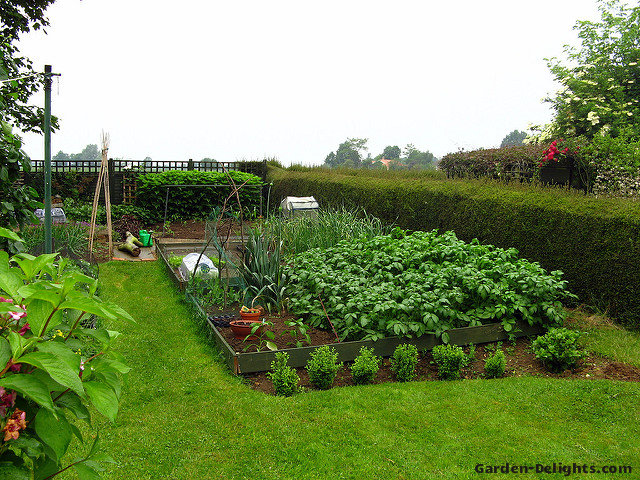Composting for Healthy Organic Garden Soil
Organic Composting is more than a fertilizer for the garden or a healing agent for the soil's wounds. It is a symbol of continuing life by the use of decomposing organic matter that will help create a healthy garden soil. Nature herself made compost before man first walked the earth and before the first dinosaur lifted its head above the primeval swamp. Leaves falling to the forest floor and slowing moldering are and continuing soil rebuilding program of nature.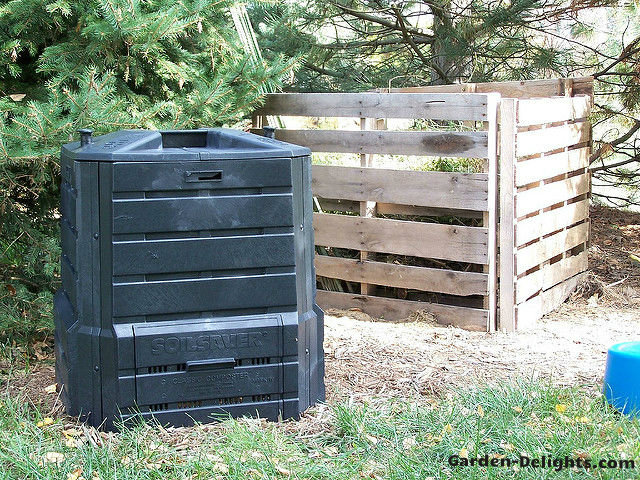
The compost heap in your garden is an intensified version of this process of decomposing and rebuilding of rich garden soil which is going on almost everywhere in nature.
In the course of running a garden, there is always an accumulation of organic waste of different sorts - leaves, grass clippings, weeds, twigs - and since time immemorial gardeners have been accumulating this material in piles, eventually to spread it back on the soil as rich in nutrients and moisture retention for the soil with a good density dark humus.An ideal balance of sand, silt and clay is a good formula for overall high quality loam material.
The Purpose and benefits of Composting:
Gardening and farming disrupt the natural pattern of the return of plant matter to the earth. Compost is the link between modern agriculture and nature's own method of building soil fertility.
In addition to returning rotting vegetable material to the soil, there are two major reasons for making your own compost:
- To render certain materials such as manure and garbage pleasant to handle.
- To increase the nitrogen content of low-nitrogen materials such as sawdust, straw and corncobs.
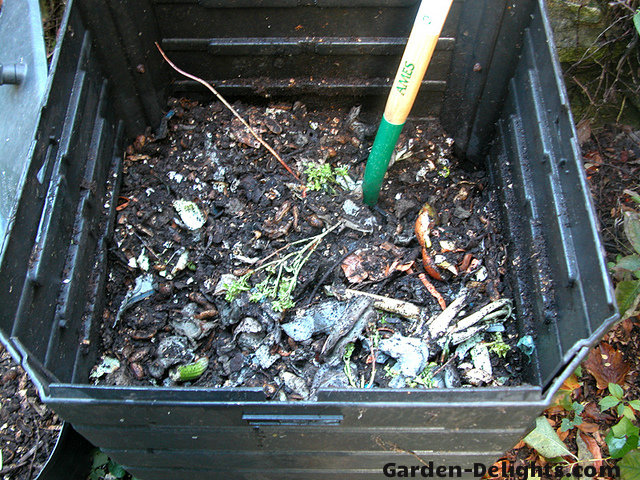
The high heat of composting rapidly "cooks" the smell out of manure and garden waste. This is a significant gain because gardeners are often reluctant to use those materials "fresh".
The composting process also increases the nitrogen content of the pile. Microorganisms "burn off" much of the carbon, reducing the cubic bulk of the heap but correspondingly increasing its nitrogen portion.Compost has a basic of three MAIN nutrients that provide healthy growth for plants which are the phosphorus, nitrogen and potassium.
Organic matter is valuable to the soil only while it is decaying. Even finished compost is actually only partly decayed. It continues to break down in the soil, providing food for increasing populations of microorganisms upon which your plant health depends. Pound per pound (kg per kg) compost is the finest soil conditioner to be had is it also adds other beneficial micronutrients such as zinc, iron, copper and manganese which can only be found from good organic compost.
How To Make Compost Fertilizer The Best Tips For Your Garden
Making compost is not difficult and can be easily done at home. Essentially, the basic methods call for layering natural ingredients in heaps in mixed proportions, providing necessary air and moisture and turning the heaps to provide bacterial action on all parts of the heap.
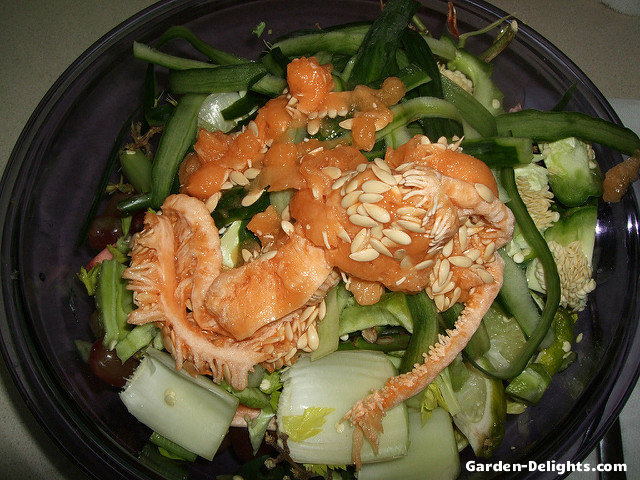
Just about any organic matter can be used. Weeds, fruit and vegetable peelings, grass, garden clippings, dead flowers, sawdust, woodchips, coffee wastes, nutshells, shredded leaves, and more can all be used provided they are chemical, pesticide and herbicide free. Also, do not use feces, or dead animals. In short, think to yourself, "Do I really want to eat this?"
Compost can be made either in open piles or in bins. Piles are more easily turned, but bins have a better appearance in the garden. Bins also have the advantage of better moisture and temperature control. Personally, I have found beginning with a pit in the garden seems to work best, as it attracts earthworms to help with the breakdown of the materials, plus you can turn it easily.
Composting Methods For Your Garden Soil
- 1. Whichever type of composting method you choose: Whichever composting method you choose, select a sunny spot and begin by putting down a 6 inch layer of plant wastes such as spoiled hay, straw, sawdust, plant leaves (shredding them first helps) garden clippings, or wood chips.
- 2. Add a 2 inch layer of manure and bedding.
- 3. Follow with a layer of topsoil, approximately 1/8 inch thick. Unrine-impregnated topsoil is particularly valuable but find out what the animals have been eating as hormones, antibiotics, and chemicals etc, will end up in your soil and then in your food.
- 4. On top of this layer of soil spread a sprinkling of lime, phosphate, bone meal, rock, granite dust, or wood ashes to increase the mineral content of the heap. Lime is not added if an acid compost is wanted.
- 5. Water the pile, and continue the process of laying. Do not trample on the heap because if it is matted down, aeration will be impeded.
Composting Process Is A Healthy Way To create Organic Garden Soil
Within a few days the heap will begin to heat up and start to shrink in size. The heap is turned with a pitchfork 2 - 3 weeks after being made, and again at about 5 weeks of age. Care is taken during turning to place the outer parts of the heap on the inside so that they can decay fully.
Do not turn the heap too frequently, as it needs to build up heat for the decaying process. Keep the pile moist, but not wet, and let nature take its course. The compost will be finished after about 3 months.
When To Apply Compost To The Garden Or Lawn
The main influence on when you should use compost is timing, rate and method of applying compost is its condition, age, and degree to which the composting process is complete. Fully mature compost resembles - indeed, it is - supersoil, a light, rich loam. If half completed so it still retains some fibrous material, it will continue to decompose and generate heat. 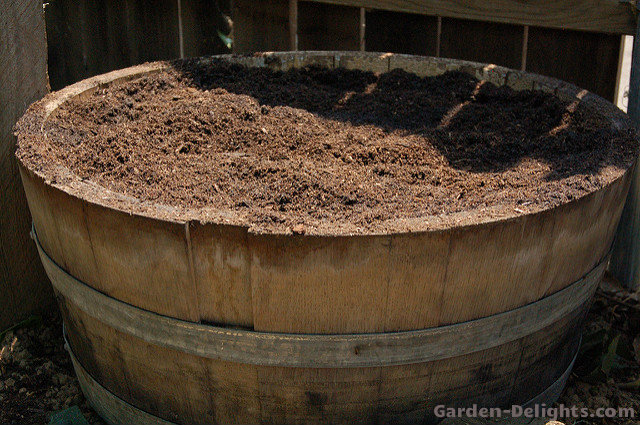
Such compost should be permitted to finish composting. Never place it near growing plants. However, if you have unfinished compost in the fall of the year, it is safe to apply it. It will finish up in the soil and be ready to supply growth nutrients to the first spring plantings.
The preferred time to apply fully matured compost is a month or so before planting - or, if you are a successive cropper, planting two or more crops to the same parcel of land each session, just before planting. The closer to planting time it goes on, the finer it should be shredded or chopped, and the more thoroughly it should be hoed or tilled into your soil.
If compost is ready in the fall but not intended for use until spring, it should be kept covered and stored in a protected place. If it is kept for a long period of time during the summer, the finished compost should be watered from time to time.
How Do You Apply Compost To The Garden Or Existing Plant?
For general application, the soil should be stirred or turned thoroughly. Then the compost fertilizer is added to the top four inches of soil. For flower and vegetable gardening, it is best to pan the compost through a 1/2 inch sieve. Course material remaining may then be put into another compost heap.
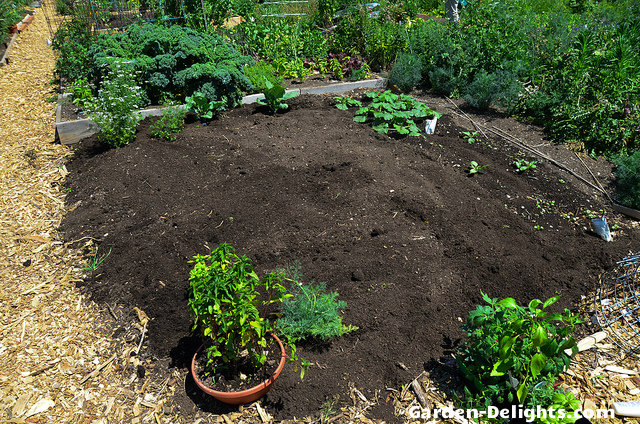
To avoid disturbing roots of established plants, compost should be mixed with topsoil and applied as mulch. This is often termed "side dressing". It serves a double purpose, providing plant food that will gradually work itself down to the growing crop, and as a mulch giving protection from extremes of temperature, hard rains and growth of weeds.
For best results when composting for garden soil, compost should be applied liberally, from 1 - 3 inches per year. There is no danger of burning due to overuse, as happens with artificial fertilizers. Apply compost either once or twice a year.
Layered Garden or "Lasagna" gardening Compost basics
- 1. Begin by digging a pit of the appropriate size.
- 2.Line the bottom with wire mesh if Rodents are a problem when you are building a compost pit in your area to help keep rodents out of compost. The core or bottom of your compost pile garden is made up of twigs, small branches, and other coarse materials. Next comes twigs, finely shredded branches, sawdust, etc.
- 3. On top of this,you can add to compost and place garden materials such as weeds, lawn/grass clippings, fruit and vegetable peelings from the kitchen, coffee grounds, shredded leaves, dry cat or dog food works well for composting also. It's best to shred the leaves, as too many leaves placed in whole can pack down and prevent natural aeration and decomposition (it might start to stink).
- 4. Follow with a layer of partially finished compost.
- 5. Top with fully finished compost mixed with quality topsoil.
Top Choice Composting Products


